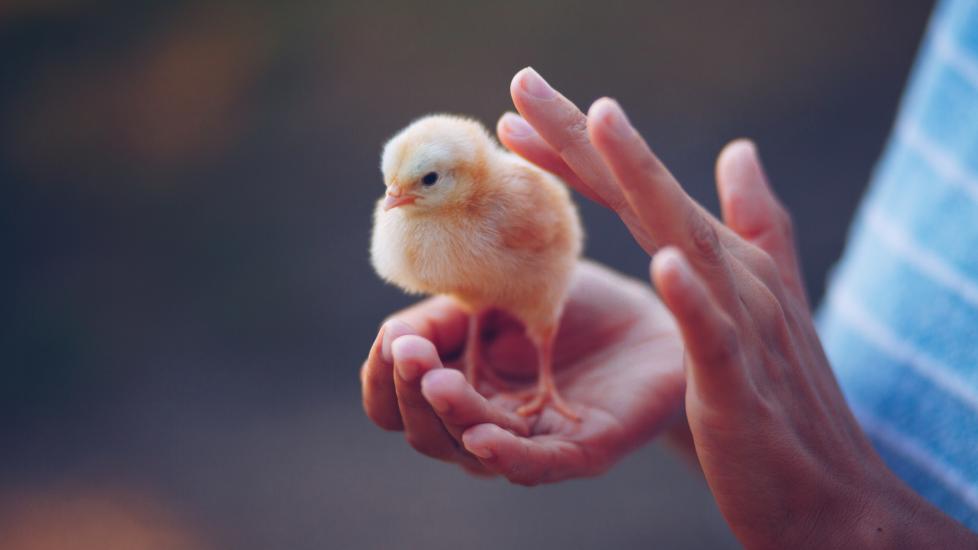Why You Shouldn’t Gift Chicks for Easter
Let’s face it: Easter chicks are adorable. There is something about that tiny, fluffy, peeping creature that just begs you to buy and gift them to someone you love. Even though we all want to cuddle a baby chicken, the question begs to be asked: Is it a good idea to buy a chick for Easter?
Probably not.
Many pet chicks that are purchased at Easter end up being surrendered. Local humane societies can become inundated with Easter chicks that have grown up into less-cuddly adult chickens—many shelters won’t even accept chicks or chickens. And unfortunately, many of these chickens are euthanized because there’s nowhere for them to go.
What You Need To Know About Pet Chicks
If you’re thinking about buying an Easter chick to keep or give as a gift, here’s some veterinary advice to keep in mind before you make this decision.
Pet Chicks Are Not Toys
This probably goes without saying, but a chick isn’t a toy. They are a living creature that deserves our respect and proper care.
Unless you have a the coop and equipment needed to properly care for domestic fowl and either have experience caring for backyard chickens or plan to get that experience, you should not purchase a baby chicken.
There Are Different Breeds of Chicken
Before bringing home a chick for Easter, it’s important to investigate which breed of chicken you are thinking about purchasing. Some breeds are more aggressive toward humans and other chickens once they are grown.
A Chick’s Sex Isn’t Guaranteed
There is also a chance that you might get a rooster. Although chicken producers do their best to identify the sex of their chicks, the process is not 100% accurate, and sometimes rooster chicks are accidentally sold as hen chicks. What is your plan if you end up with a rooster (which can crow a lot, by the way) and not a hen?
Many pet chicks that are purchased at Easter end up being surrendered. Local humane societies can become inundated with Easter chicks that have grown up into less-cuddly adult chickens.
Chickens Are Flock Animals
Purchasing a single chick, or even two or three chicks, is not a good idea. For chickens to be happy, you’ll need to purchase six or more chickens at a time.
Chickens Might Not Be Allowed
It is also important to note your town’s laws about keeping chickens within city limits. Some towns require special permits, limit the number of hens, prohibit roosters, or forbid chicken-keeping altogether within city limits.
Chicks Can Harbor Disease
Chickens can carry bacteria, such as E. coli and salmonella, that can cause disease in humans. The very old, the very young, organ-transplant recipients, cancer patients, and people with HIV are at highest risk of contracting disease from a chicken.
Bacteria is spread in feces and can also be present on feathers. It’s important to always wash your hands after handling adult or baby chickens.
How To Raise a Pet Chick
Keeping birds, including chickens, is a lot of work. Chickens need a coop for sleeping and laying eggs. This coop needs to be secured against foxes and raccoons, which tend to be the most common predator of backyard chickens.
Chickens need indoor and outdoor areas, and chicks need a heat lamp. Chicks require special food that must be purchased from a tractor or ranch supply store.
Chickens can live seven to eight years if properly cared for. It’s important to note that you are committing to care for a chicken for the life of the bird when you purchase a chick.
Featured Image: Goxy89/E+ via Getty Images
